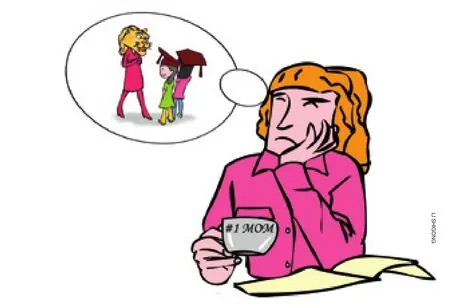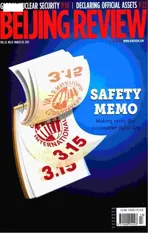The Truth About Tiger Mothers
2012-10-14ByKarmelSchreyer
By Karmel Schreyer
The Truth About Tiger Mothers
By Karmel Schreyer
T here has been a lot of media coverage recently regarding the issue of Chinese-American Yale law professor Amy Chua’s parenting practices, her book about them entitledThe Battle Hymn of the Tiger Mother, and the resulting brouhaha over the pitfalls of Chinese parenting. At first,the way the issue was reported, I felt guilty.Was I not doing enough for my own children? At first, as a Hong Kong-based mum,I felt I could relate. My two daughters, about the same age as Chua’s, are accomplished dancers and gymnasts, earning marks that make me proud, spending their time outside their IB-program school practicing violin and guitar, and augmenting their classroom Mandarin w ith Mandarin-by-Skype lessons.
Our holidays included summers spent in Iceland where, in addition to rigorous hiking and playing golf under the midnight sun, I offered“study-tours” of geothermal power plants and close-up looks at hydroponic greenhouse agriculture staffed by special-needs personnel. We spent one Christmas in Cambodia, to teach English to orphans and to learn the basics of torturous traditional Apsara dancing alongside talented youngsters who study the art to earn a living for their families. And then there was the trip to Paris, for an immersion course in Impressionism.Trips to Florence (Renaissance art), Bali(The Green School) and Barcelona (Gaudiappreciation combined w ith clown school) are forthcoming.
I spent a while wondering about what kind of mother I was, and what animal I could appropriate as a label. As a Hong Kong-based person of Canadian descent, could I call myself a Polar Bear Mother? How the m ighty have fallen! From being the most fearless animal on the Earth to one that now resorts to garbage picking on the outskirts of Churchill,and at the mercy of global warm ing, too.Moose Mother is just not flattering. I asked my British husband about animals native to his country, but Badger Mother has that inconvenient double entendre, and Fox Mother,w hile som ething that Yumm y-M umm y wannabes may aspire to, has the w rong connotation as far as I am concerned.

LI SHIGONG
In a way, the media rumble made me feel better. In recent years I had been worried that I was pushing my children, that I was guilty of“competitive parenting,” and so I would w rite magazine articles about “overprogramming” to assuage my guilt. Now I knew—I was nowhere near approaching the level of “focus” that Chua had been demanding. For Westerners living in Hong Kong, it is easy to understand why the motivation to push children to succeed exists as it does here. Big population, small place. Passports that don’t always get you where you want to go.Bathroom attendants and old men and women pushing trolleys piled high w ith cardboard through the city’s streets. It’s basically in the numbers. It is a search for a competitive edge.Here in China, competitive parenting is not an ego trip.
I picked up the issue ofTimemagazine that followed this media scrum; Chua and her daughters were the cover feature. Certainly,the article and the photos will be worth a few more book sales for her. It does say, however,that the violinist is now continuing her lessons“for fun.” Again, I feel so much better. Unlike Chua, I never had any expectations that my daughters would play Brahms and Mozart at Carnegie Hall. But, I have mentioned to my guitar-playing daughter that, all things being equal, it is the guitar-player who w ill get that job at that international summer camp when she’s in high school. My Tiger Mother efforts go so far as compiling a list of songs she can work at, likeKumbayaandLeaving on a Jet Plane. M y little violinist also plays a mean ukelele. She will never be Hong Kong’s Sarah Chang but, let me tell you, nothing beats having your child sing and playLet It Beon that instrument after a hard day. Nothing. You may have to make a deal; some television or perm ission for a playdate or sleepover in exchange for those sweet sounds, but it’s infinitely worth it! And, I believe, the pride and pleasure they derive from—so easily—pleasing their parents may someday prove to be their competitive edge.
The truth is, this whole Tiger Mother business is just good business for Chua. But it is also the equivalent of playing the race card. It is inflammatory, risky, and essentially dishonest. And parenting is a high-stake game. The fact is, if you have ever seen a real Tiger Mother w ith her cubs you w ill recognize the sim ilarities between her and yourself. We are all tiger mothers. In spite of whatever mistakes we make along the journey of parenthood, all we w ish is the best for our children, and recognizing that we cannot leave that job to others. It is not a cultural or race-based issue. It is a human concern, and also, for some species anyway, an animal concern. It is the one truly universal issue. Happy parenting.
